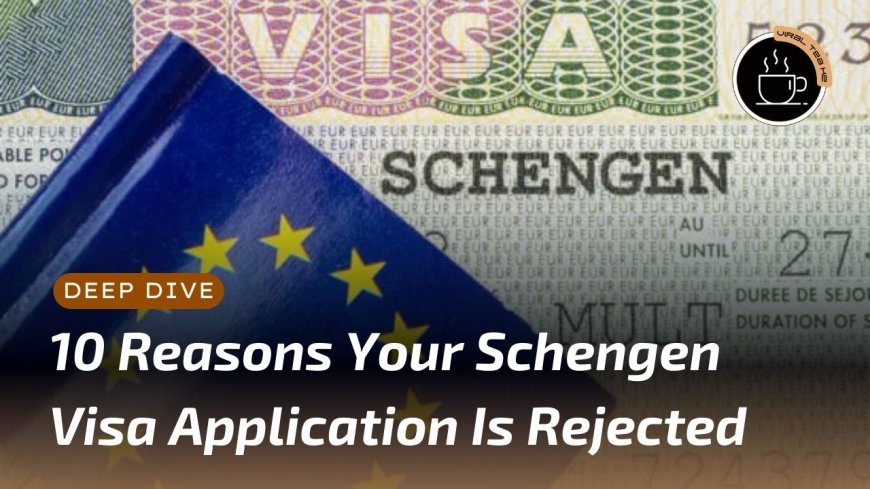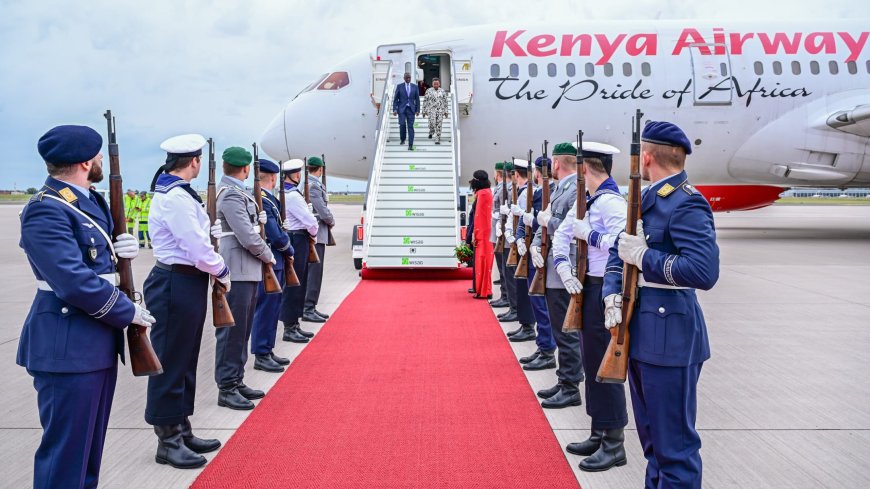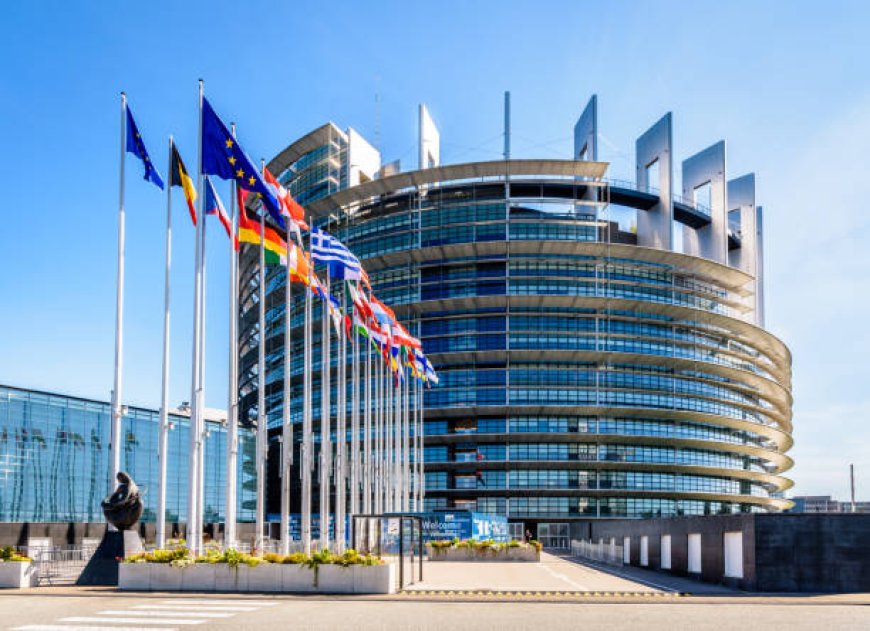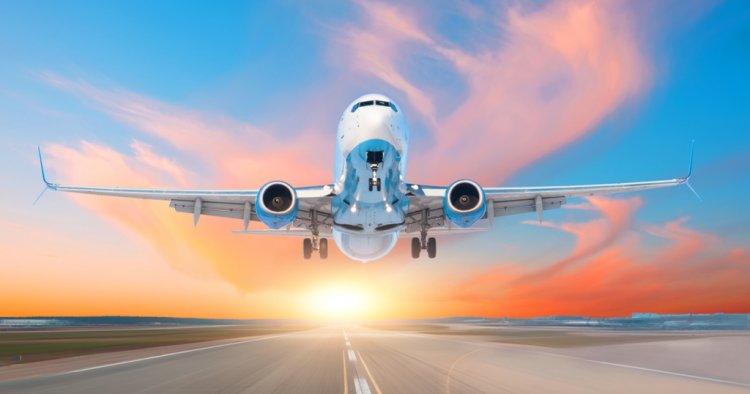Why Kenyans Are Being Denied Schengen Visas & Losing Ksh 258 Million
29.1 per cent of Kenyans who apply for Schengen visas, which grant short-term travel access to 27 European countries, are denied.

Kenyans have recently found it hard to obtain visas to travel to countries such as the United States (US) and the United Kingdom (UK) due to tightening visa restrictions. However, it is now emerging that obtaining a European visa is tougher.
A report that was shared by CNN journalist Larry Madowo on Sunday, May 19, revealed the African countries with the highest rejection rates for European Visas, data derived from the European Union Commission.
According to the report, 29.1 per cent of Kenyans who apply for Schengen visas, which grant short-term travel access to 27 European countries, are denied. This places Kenya behind several of its neighbouring countries when it comes to visa approval rates.
Tanzania (20.1 percent), Botswana (16.3 percent), Zimbabwe (16.2 percent), Zambia (10.8 per cent), South Africa (5.7 percent), Mauritius (5.6 percent), and Namibia (5.2 percent) all have lower rejection rates, meaning they’ve had better success securing these visas.

The Kenya Airways plane carrying President William Ruto and his entourage touched down at the Berlin International Airport Military Wing at 10.49 am (11:49 am Kenya time) on September 13, 2024. /PCS
At the very bottom of the list, Liberia and São Tomé have the lowest denial rates—just 0.8 per cent and 0.9 per cent, respectively, making them the most successful applicants in Africa.
While Kenya’s rejection rate of 29.1 per cent isn’t disastrous, it is still a cause for concern, especially for a country that sees itself as a diplomatic hub in East and Central Africa. That number stands out and raises red flags.
On the other end of the spectrum, the countries with the highest rejection rates are Guinea-Bissau (45.9 per cent), Senegal (46.8 per cent), and Comoros, which tops the list with a massive 62 per cent rejection rate.
"Why is it so hard for some Africans to get a European visa? 111,201 Nigerians applied for Schengen visas last year at €90 (Ksh13,114) each. 46 per cent of them were denied, losing over $5 million (Ksh646.1 million) in non-refundable visa fees. 66,329 Kenyans applied, but 29 per cent were rejected, resulting in a loss of nearly $2 million (Ksh258.4 million)," wrote journalist Larry Madowo on his social media.
The Schengen Visa System: A Quick Breakdown
The Schengen visa allows people to travel freely across 29 European countries without internal border controls. It is one of the most sought-after travel documents in the world, especially by applicants from Africa looking to travel for tourism, business, study, or to visit family. However, getting this visa as a Kenyan — or frankly, as an African — has become notoriously difficult.
Visa rejections for Africans hover at double or even triple the global average. In 2023, for example, Kenyan applicants faced rejection rates as high as 40-50 per cent, depending on the embassy. Countries like Nigeria, Algeria, and Senegal are regularly in the top five for rejection rates. So, what’s going on?
1. Perception of “Overstay Risk” and Irregular Migration Fears
Let us face the facts: European embassies see many African applicants as high overstay or asylum risks. If you come from a country facing political instability, economic hardship, or a history of irregular migration to Europe, you're already under extra scrutiny. Even if you have no intention of overstaying your visa, your passport alone puts you at a disadvantage.
This perception is often rooted in stereotypes rather than individual circumstances. Many Schengen embassies use profiling algorithms or subjective human judgment to guess your likelihood of returning to your home country. If they think you're not “strongly tied” to your country — i.e., you don’t have solid proof of income, family, property, or job — your visa is likely to be denied.
2. Lack of Transparency in the Decision-Making Process
One of the most frustrating parts is that visa rejections come with vague reasons like “insufficient justification of the purpose and conditions of the intended stay” or “your intention to leave the territory could not be established.” In many cases, applicants provide bank statements, letters of invitation, proof of return tickets — the full shebang — yet still get rejected without a clear explanation.
This lack of accountability and transparency creates a cycle of confusion and inequality. It makes it hard for applicants to understand what they did “wrong” or how to improve their chances next time. Worse yet, you don’t get your visa fee back either — that's around €80 (Ksh11,657) per failed application. Painful, especially when your application was solid.
3. Systemic Discrimination and Post-Colonial Power Dynamics
There is an unspoken racial and geopolitical bias baked into the system. Applicants from the Global South, especially Africa, face disproportionately high rejection rates compared to applicants from wealthier regions, even when documentation is identical. If a German applies to visit Kenya, they’re often approved within days, but reverse the roles, and it is an uphill battle.

The European Union headquarters. /iSTOCK
This imbalance isn't just bureaucratic; it is deeply rooted in colonial-era power dynamics and racial hierarchies that still inform global mobility. Europe remains relatively open to travellers from the West but builds metaphorical (and literal) walls for Africans, often treating them as economic migrants first and legitimate travellers second.
4. Embassy-Level Inefficiencies and Corruption
There is also a logistical and operational bottleneck issue. Many Schengen embassies in Africa are understaffed, underfunded, and overwhelmed. In Kenya, for instance, people have to book appointments months in advance, and delays are the norm.
Add to that reports of corruption and favouritism, particularly at outsourced visa application centres, where middlemen promise faster approvals — for a price. The rise of private visa processing companies has made the system even more complex and inaccessible to everyday applicants. It is a setup that favours those who can afford to “pay to play” while pushing out lower-income, honest applicants.
5. Economic Disparities and “Proof of Funds” Hurdles
Even for well-qualified Kenyan professionals or students, meeting the financial requirements can be brutal. Embassies often expect you to have thousands of euros in your bank account, plus proof of employment, accommodation, insurance, and a detailed itinerary.
For many, this is simply unrealistic — not because they can’t afford the trip, but because financial documentation systems in Africa don’t always align with European expectations. For example, someone might have access to family wealth or business capital that isn’t reflected in their personal bank account, or they might work in the informal sector, and that’s usually a red flag for consular officers.
6. Political Tensions Between the EU and African Nations
Visa policies are also a tool of geopolitical leverage. Some African countries — Kenya included — have been reluctant to sign European Union (EU) readmission agreements, which would require them to take back nationals who are deported from the EU. As a result, Europe retaliates subtly by restricting visa approvals.
For example, Germany, France, and the Netherlands have previously admitted that high rejection rates for certain African nations were politically motivated. It is a form of soft diplomacy (or coercion, depending on how you see it), where visas become a bargaining chip in broader negotiations around trade, migration, and security.
7. Unequal Access to Appeal or Legal Recourse
Once your visa is denied, you can technically appeal the decision, but this process is expensive, complex, and time-consuming. Most African applicants don’t have the resources or legal guidance to challenge a rejection effectively.
Even if you’re lucky enough to win the appeal (which can take months or even years), the damage is done. Your credibility as a traveller is flagged, and future applications will come under heavier scrutiny.
8. Blanket Policies Instead of Individual Assessments
Another key issue is the one-size-fits-all approach most Schengen embassies take. Rather than considering individual contexts, many operate on assumptions based on nationality. This is especially damaging for young, first-time travellers from Kenya or Africa in general.
You might have everything in order, but because your demographic is considered “high-risk,” you’re lumped in with applicants who genuinely might overstay.
This mentality also hurts cultural exchange, education, business, and tourism. Talented African youth miss out on conferences, scholarships, internships, and networking opportunities simply because of their passport.
9. Schengen Visa Privilege Is Increasingly Pay-to-Win
More and more, the Schengen system is becoming pay-to-win. If you are rich or have dual citizenship from a Western country, your chances shoot up.
There are fast-track services, VIP visa lanes, and even “golden visa” schemes for wealthy individuals who invest in Europe. But for the average Kenyan, even affording the visa process is a stretch.
This further entrenches class inequality. Travel becomes a privilege for the elite — both in Africa and Europe — while the rest are locked out of international opportunities and global mobility.
10. Mental and Emotional Toll on Applicants
Beyond the logistical issues, the process takes a huge emotional toll. Constant rejections make people feel like second-class citizens on the global stage. There’s frustration, humiliation, and a sense of being trapped — not by geography, but by bureaucracy.
Many young Africans grow up watching others travel, study, or work abroad, yet feel systemically shut out, no matter how hard they try to follow the rules. It creates resentment and deepens the divide between “them” and “us.” It is demoralising, and in some cases, pushes people toward irregular migration — ironically reinforcing the very stereotype that caused their rejection in the first place.
Wrapping Up
The high rate of Schengen visa rejections for Kenyan and African applicants isn’t just about paperwork — it is about global inequality, racialised gatekeeping, and a broken system that favours wealth, whiteness, and Western passports. European countries talk big about diversity, inclusion, and global partnerships — but when it comes to actual movement across borders, their policies tell a different story.
Until Schengen countries commit to fairer, more transparent, and individually assessed visa processes, the system will continue to be seen as discriminatory and colonial in its design. For many Africans, the message is loud and clear: “We want your resources, not your presence.”
It is time that changed. The world is interconnected, and travel should not be a privilege reserved for a few. Africans deserve the same freedom of movement, dignity, and opportunity as anyone else. Period.







